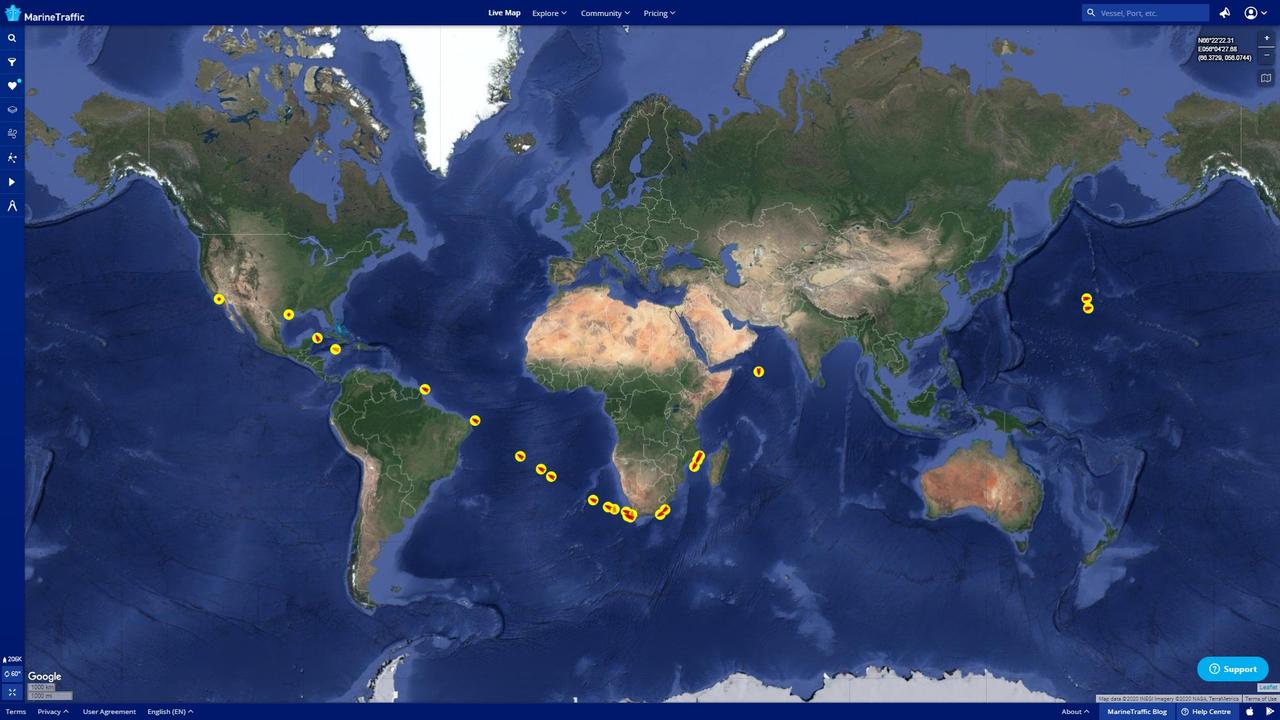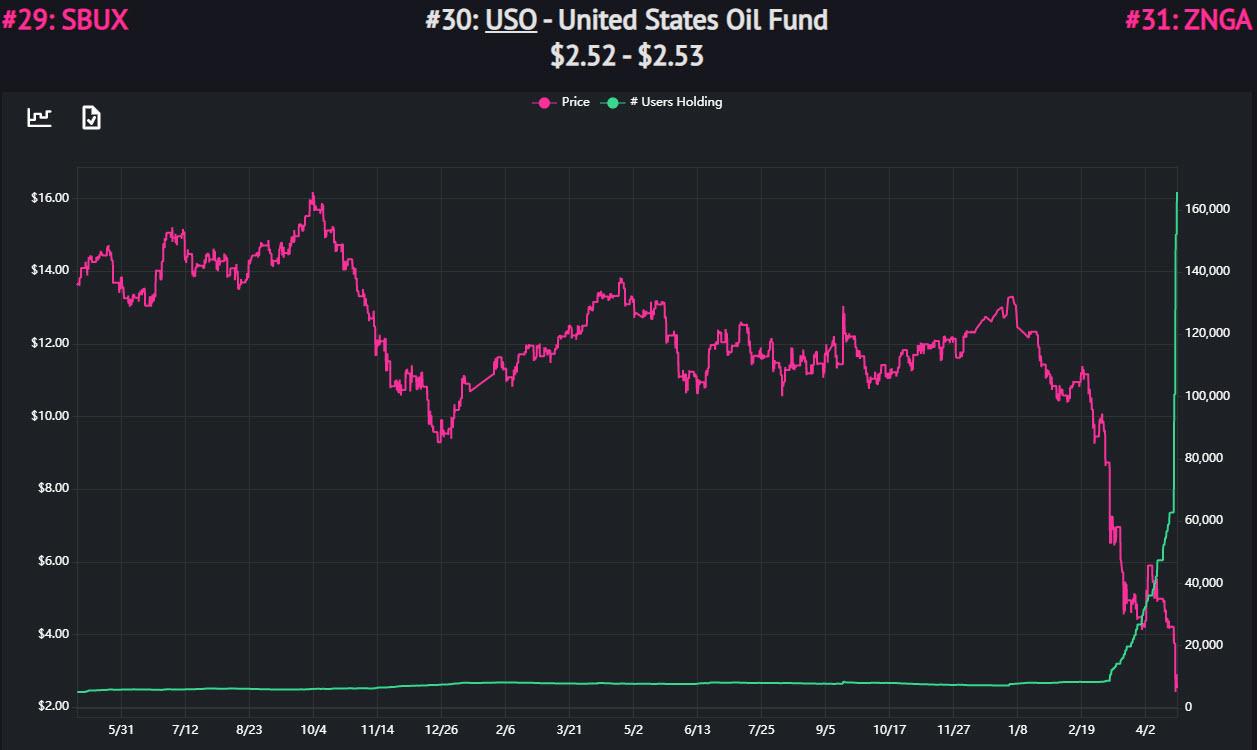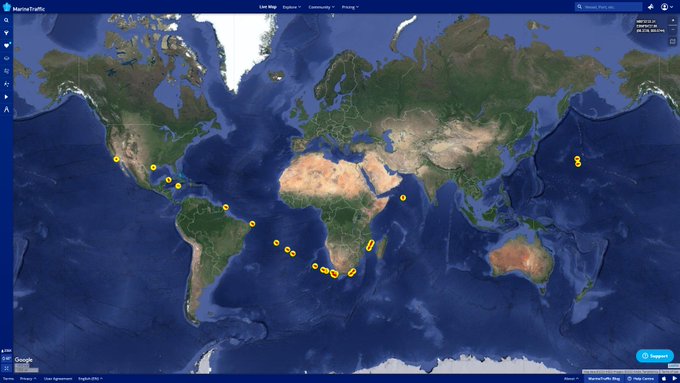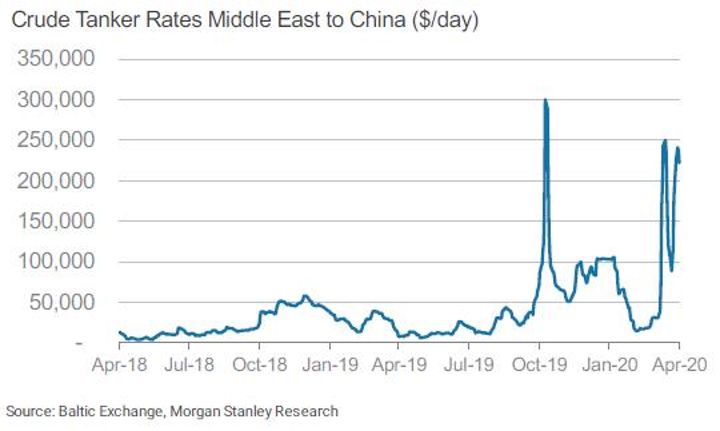Kyle Bass: "The Saudis Are
Sending Us A 50 Million
Barrel Oil Bomb"
22 April, 2020
By now even the 165,727 "professional investors" who are long the USO ETF on the free, glitch-prone platform Robin Hood, are aware that the problem facing global oil production is that there is simply no storage where to put all the physical oil (as we warned in late March).
And if even the army of Robinhood-ers now know how impossible it is to find space for physical oil on the continental US, then Saudi Arabia - which sparked the current crude crisis and which will not stop until shale is completely crushed - is certainly aware.
Which is why with the US unable to store its own output, some 50 million barrels of Saudi oil are on their way to the United States and due to arrive in the coming weeks, piling even more pressure on markets already struggling to absorb a glut of stocks, Reuters and MarineTraffic reported.

Shipping data showed the more than 20 supertankers - each capable of carrying 2 million barrels of oil - were sailing to key U.S. terminals, especially in the U.S. Gulf. Three separate tankers, also chartered by Saudi Arabia, were currently anchored outside U.S. Gulf ports.
According to Reuters sources, the kingdom had tried to seek storage options for the cargoes from tanker owners when the ships were chartered last month, but many pushed back given booming rates and not wanting tied up vessels.
The result was an outpouring of anger from the increasingly political hedge fund manager, Kyle Bass, who tweeted earlier that "the Saudis and Russians have declared war against US shale energy companies. It seems they weren't happy with American energy independence. Storage full..largest glut in history..Saudis are sending us a 50 million barrel oil bomb. How negative will June crude go?"
The Saudis and Russians have declared war against US shale energy companies. It seems they weren't happy with American energy independence. Storage full..largest glut in history..Saudis are sending us a 50 million barrel oil bomb. How negative will June crude go? #Oil #USOIL twitter.com/TankerTrackers…
The anger at the incoming Saudi "bomb" has spread all the way to Washington, and U.S. officials said in recent days that Washington is considering blocking Saudi shipments of crude oil, or putting tariffs on those shipments, adding to difficulties for the cargoes now on the water.
U.S. senator Ted Cruz said on Twitter on Tuesday: “My message to the Saudis: TURN THE TANKERS THE HELL AROUND.”
20 tankers—filled w/ 40mm barrels of Saudi oil—are headed to the US. This is SEVEN TIMES the typical monthly flow. At the same time, oil futures are plummeting & millions of US jobs in jeopardy. My message to the Saudis: TURN THE TANKERS THE HELL AROUND. wsj.com/articles/flood…
4,797 people are talking about this
In response, two sources said Saudi Arabia was looking into whether it could re-route the cargoes elsewhere if the United States halted imports.
Oil traders active in European and Asian markets said there was expectation that the Saudis would look to divert the cargoes to other markets if a ban was imposed... which in turn would put huge pressure on storage tanks in those two regions, and depress local oil benchmarks.
“Europe looks full, but surely if the Saudis offer it at really cheap levels, buyers would take it,” a source with an international trading firm told Reuters. “Some still have storage spaces or may agree to float it for some time.” A source at a separate oil trading firm active in Asia said they expected many of the barrels that were bound for the United States to flow to the region if exports were blocked.
* * *
"This could prove to be a very expensive exercise for Saudi Arabia as whatever happens with the cargoes and the tanker owners will need to be paid demurrage (for the ships) and those costs would have been locked in when the market was higher to secure the charters,” a shipping source said. "While this is an expensive gamble for the Saudis, shutting off production would have been proved even more costly."
Additional costs - or demurrage - were estimated at $250,000 a day based on rates last month when a lot of vessels were booked. Daily tanker rates soared to nearly $300,000 in the past month and though they have retreated to $150,000 a day this week, they are still significant and would be in addition to other costs including insurance if the ships are held up.
Even if the Saudi tankers make it to the US, it is not clear who would want their cargo. With the economy shut down, driving virtually non-existent and gasoline demand falling off a cliff, refiners have been absent from oil markets in the United States in recent days as they slash processing rates and as demand dries up, physical oil market sources said. "There is more reluctance now with fresh shipments as refiners in the U.S. have no homes for the oil," another shipping source said.
Marathon Petroleum, Exxon Mobil, Chevron and Phillips 66, which traditionally among the biggest U.S. buyers of Saudi crude, have gone radiosilent.
As Reuters adds, most of the large buyers of Saudi oil are along the West Coast. The region accounts for about half of all Saudi crude imports to the United States, according to the EIA. Storage there was already 65% full as of April 10; two weeks later and that number is approaching 100%. The Gulf Coast - which is the second biggest US destination for Saudi oil - was about 55% full.
The imminent arrival of the Saudi tankers comes at a time when the main U.S. storage hub in Cushing, OK, is expected to be full within weeks.
The question reached the very top on Monday, when President Trump said he would “look at” possibly stopping Saudi shipments to the United States. While it wasn't clear what Trump had in mind, last week, Frank Fannon, the U.S. assistant secretary of state for energy resources, said tariffs were a possibility.


 Kyle Bass
Kyle Bass





No comments:
Post a Comment
Note: only a member of this blog may post a comment.